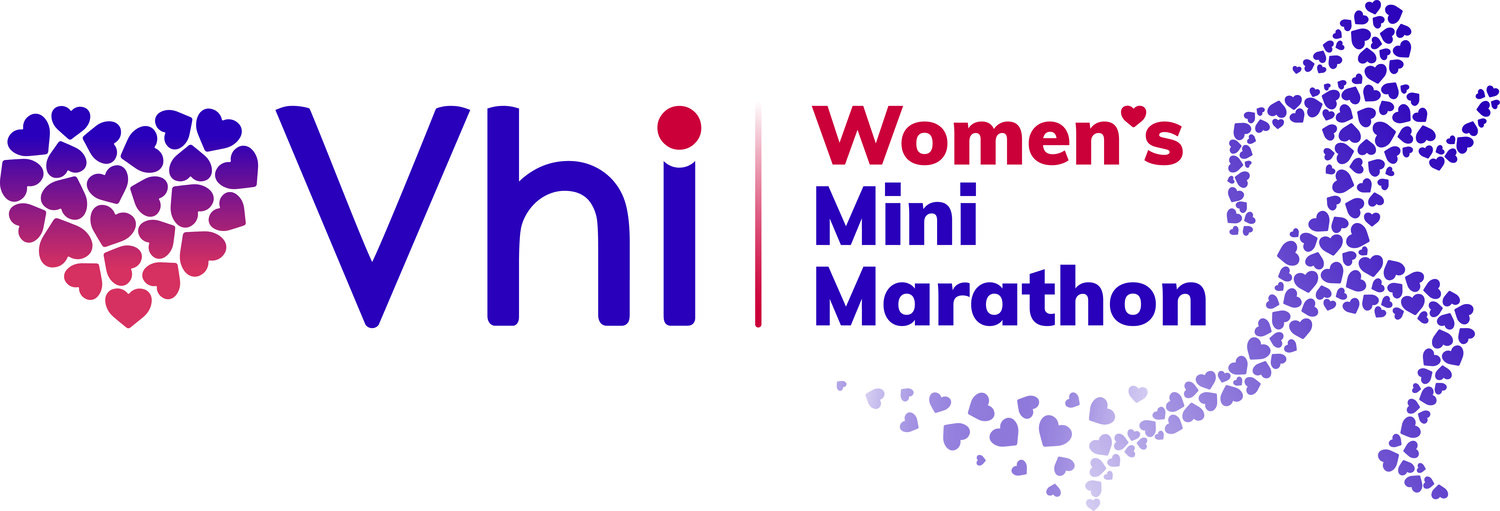Vhi Women's Mini Marathon Race Day & Post Race Advice
It is just a few days until the Vhi Women's Mini Marathon, the largest women's event of its kind in the world. At this stage, whether you plan to run or walk the distance, your training should be finished, and you should be thinking about your preparation for Sunday.
The focus now should involve keeping well hydrated, eating healthily, sleeping well and keeping your body supple.
Staying hydrated is easy. Have a bottle with you and keep sipping over the next few days, to get used to having fluid in your stomach. You will know you are drinking enough if your urine is clear or pale yellow.
Water, diluted fruit juices and sports drinks are commonly used for rehydration. As sodium is the major salt in sweat, some drinks contain added sodium along with carbohydrates. Don’t be tempted to try new drinks in the lead up to the race. Stick to what you are used to, to avoid stomach upset.
Eat well and avoid spicy or fatty foods you are not used to, especially on Saturday. These can upset your stomach, keeping you awake at night, and cause tummy problems on race day.
Eat some extra carbohydrates in the form of potato, pasta or bread with each meal on Friday and Saturday. You should have enough fuel to get through the 10km based on your meal on Saturday evening and your breakfast on Sunday.
If it will take you longer than approx. 90 mins to make it around the course, you may need to top up during the run. Dolly mixtures have the most sugar per 100g of carbohydrates and are easy to carry.
Sleep is often overlooked as a vital part of recovery and training. Sleep plays a critical role in restoring the body after bouts of exercise. Lack of sleep may affect how well you run on Sunday, so make it a priority to get 8 hours each night.
Getting your body prepared for the race is important, as many of us sit for long periods of the day commuting or at work. Keep your body supple and mobile by stretching and foam rolling over the next few days. Pick out 3 stretches to work on and gently move those joints and muscles into end range.
A gentle walk, cycle or swim are great ways to keep your body supple, but don’t overexert yourself, as you also need to conserve energy for the run. An easy short run is fine too, to keep you sharp and calm any nerves.
If you are feeling a niggle at this stage, do not panic. Call your local Chartered Physiotherapist for advice on how best to safely manage the issue. It is not too late for a treatment session if needed, to ease out any muscle tension or loosen a stiff joint, with sound advice and reassurance on how best you can complete the run.
Blister care is an important part of preparing for a race. If you spot redness on your foot, prevent the blister developing by applying a specialised adhesive blister plaster. These stick on and cushion the area. If the blister has already developed it is advisable to pop it with a sterile needle, allow the fluid (or blood) to drain to reduce the pressure, and bandage it to prevent infection. Never pull the skin off a blister, or you will end up with an open wound.
On race day, warm up to prepare your body, with dynamic stretches to move your joints and muscles through their full range. This is even more important if you have a long drive to get to the race. Walking to the start line will also help limber you up and counts as warming up, so get off the luas one stop early!
The Irish Society of Chartered Physiotherapists (ISCP) will have 3 designated areas at the end of the course, with a brilliant team of volunteer physiotherapists hosting a cool down area, assessment and treatment area, and a relaxation centre.
Walk for a few minutes after crossing the finish line, even if you are uncomfortable, and make your way to the ISCP Cool-Down Stage to join Chartered Physiotherapist Sinéad Geraghty who will demonstrate the important static stretches to reduce muscle soreness. Eat a carbohydrate-protein combined snack within 30 minutes of completing your race.
If you sustain an injury, head for the ISCP Marquee on Merrion Square South for an injury assessment. The VHI relaxation area in Merrion Square will have foam rolling and myofascial release classes to aid recovery. If you have any questions relating to injury or recovery, just ask one of the Chartered Physiotherapists on hand at any of the 3 designated areas.
If you are not used to running, your body may feel stiff for the first 2-3 days after the race; this is normal. Light cross-training is great to keep the body in active recovery so cycle, walk or go swimming to help your body recover. If you still have pain or tightness that is not settling by the following weekend, contact your local Chartered Physiotherapist for help.
Best of luck!
By Jenny Branigan , Chartered Physiotherapist & Owner of Total Physio in Sandyford, Dublin 18. www.totalphysio.ie

